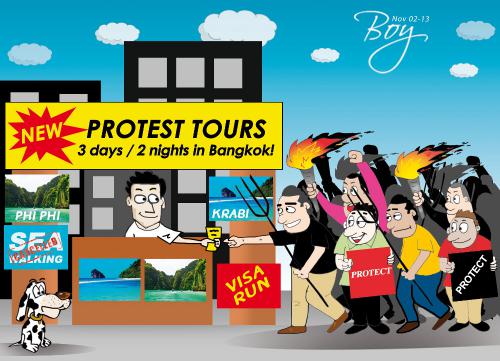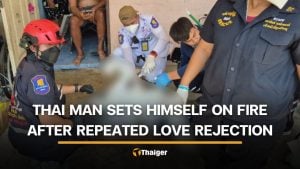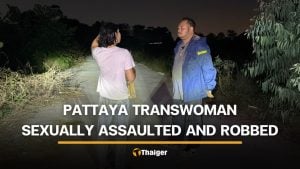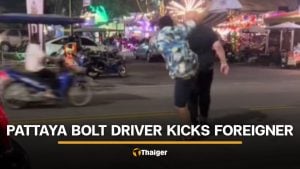Phuket Opinion: The high price of protests

PHUKET: Local outcry over the amnesty bill recently passed by the House is understandable, but there should be concern about establishing the island as a regional center for political protests.
The protest last Sunday at Sanamchai, the large open field opposite Phuket Provincial Hall, was relatively peaceful given the huge number of people who took part (story here). Many came from across the region to attend, and it could easily have been the largest crowd ever assembled on the island; for a political cause it certainly was.
The right to assemble in this way is enshrined in the Constitution, as it should be. Yet the powers that be in Phuket, with its tourism-based economy, need to think long and hard about the effects, both immediate and potential, that can result from hosting such gatherings. Put bluntly, this is not the kind of event we need.
The main problem with political protests being held far from the capital is that they may do more harm locally than good. We were lucky that last weekend’s protests ended with no loss of life and limited property damage. But the potential for disaster when so many people converge in one place, at one time, always needs to be considered. We dodged a bullet with the SuperCheap fire (story here), but bullet-dodging is another exercise that seldom ends well.
Also, Thailand has a long history of political protests that have ended in brutal violence. But what have we gotten back from all the lost lives, spent bullets, burned calories, wasted time and plummeting tourism figures?
Not much, apart from developing the embarrassing reputation as a world leader in this sad realm. Even when carried out peacefully, generally all that results from political protests in Thailand is more of the same problems. “Cutting off the head” does not work.
Thailand seems to have overtaken South Korea internationally as the country most often associated with protests, which highlights the repeated failings of our democracy. Meanwhile, most Thai political protests have been limited in their long-term impact because they occur within the same social framework that allowed the underlying problems to develop in the first place: a toxic substrate of widespread corruption.
Local political leaders need to understand that adding “protest” to the reasons to come to Phuket is a bad idea. And passing off local movements as “grassroots” is particularly hard to do when so many life-long politicians are involved.
Not only do we have much to lose from hosting large-scale political protests, but such events also seem at odds with an island that markets itself as a tropical resort destination.
Latest Thailand News
Follow The Thaiger on Google News:


























